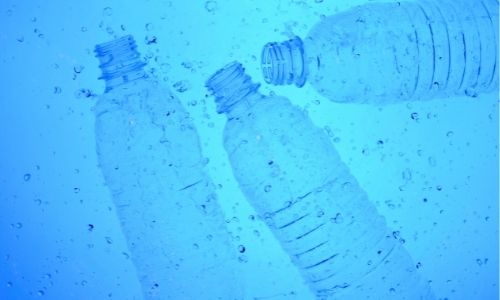It’s no surprise that minerals are vital to ensure the proper functioning of our bodies. However, it might be a little surprising for you to know the various benefits and importance of drinking water with minerals in it and how great it can prove to be for your health.
This article will look at the importance of various mineral waters in human nutrition, backed by scientific research and studies. Read on to know more.
What is Mineral Water?
Mineral water is spring water that naturally consists of many minerals. However, through the process of artificially adding minerals to distilled water, mineral water can be manufactured too.
Importance and Health Benefits of Minerals in Drinking Water
There are many benefits that drinking mineral water can offer. Different minerals tend to our different bodily needs. Let’s take a look at them.
Calcium in Drinking Water
The presence of calcium in water can be good for skeletal health while also being beneficial for the nervous system, muscle, and blood system, as the report suggests. Drinking of high calcium mineral water is also proved to decrease the ratios of bone remodeling in women post their menopausal stage who have low calcium intake.
A study conducted on various women also displays that regular consumption of calcium-rich water may improve the average spine mineral density.
Magnesium in Drinking Water
Consuming water containing moderate or high levels of magnesium could be pretty helpful for many health concerns. Magnesium is the essential component of magnesia mineral water and is said to have many benefits to it. As per the study, it can help with obstetric-gynecologic pathologies: pre-menstrual syndrome and postmenopausal osteoporosis.
Magnesium, combined with other minerals, also has many health benefits. Magnesium sulfate mineral waters help with the reduction of constipation and improve bowel function, as the study asserts.
Bicarbonate water with sulfate, magnesium, and calcium can prove to help with the functional issues of the biliary tract. High magnesium content allows the bile to flow, which helps improve biliary ducts activity, as per the report.
This study conducted on a European population went on to show that high levels of magnesium in drinking water might reduce the risk of Coronary Heart Disease. Hence, magnesium in drinking water can also be good for the heart.
Fluoride in Drinking Water
Fluoride in drinking water has its own set of benefits. It can help promote bone mineralization, reducing the chances of decay. Though, you must make sure that fluoridate mineral water is consumed in a low quantity, as said by the report. There are certain limits set for fluoride consumption by the WHO, and they must be followed. High fluoride in drinking water may lead to problems like dental fluorosis to skeletal fluorosis.
Sodium in Drinking Water
The report suggests that bicarbonate sodium-rich mineral water may be protective against cardiovascular disease (CVD) risk in postmenopausal women.
Another study hints that sodium-rich mineral water may also increase insulin sensitivity. Mineral water rich in sodium can turn out to be part of a healthy diet plan, improving insulin resistance while also preventing cardiovascular disease.
Iron in Drinking Water
Iron is a vital mineral for good health, which is also crucial for the transportation of O2 into our blood. One of the many reasons for Anaemia among kids and women is lower iron content.
Iron in mineral water is recommended for pregnant women, specifically in the treatment of anemia. It can also prove to be helpful in cases of chronic phloglosis of the upper respiratory tract, as per the report.
Bicarbonate Mineral Waters
Bicarbonate natural mineral waters have a very low mineral content in them, and they are alkaline in nature. The beneficial effects of bicarbonate mineral waters on the digestive tract have also been looked at by many reports. It is suggested by the report that by drinking bicarbonate mineral water, the acid secretion might be neutralized. It can also lead to an increase in the pH level in the gastric lumen and help with the release of digestive hormones.
In fact, bicarbonate mineral is also said to contribute to the prevention of cardiovascular diseases.
FAQs
How is natural mineral water and packaged drinking water different?
Natural mineral water is the water that you get from underground sources and meets the specified quality standards without going through any processing. On the other hand, packaged drinking water can come from any water source and undergo treatment and disinfection. Processes such as filtration, ozone treatment, reverse osmosis make the water safe for consumption by people.
Is too much mineral water consumption bad for health?
It is not wrong to say that doing things beyond certain limits can turn out to be bad. Even consuming water beyond a limit can prove to be bad for health. Even though there are no such downsides of consuming mineral water, it must be made sure to consume it in limits and not consume it excessively.
There are guidelines as to how much mineral intake you must go for on a daily basis, and it depends on various factors like age, gender, etc. Exceeding these might contribute to certain ill effects on your health.
You May Like To Read:
How To Make Mineral Water At Home?
What is the best water purifier for home use?
Conclusion
You must be aware by now how many benefits your body can have simply by consuming water. The presence of minerals in your drinking water is an easy way to meet your body’s mineral nutrition requirement.
Do so within a limit, and remember to stay healthy and hydrated.




